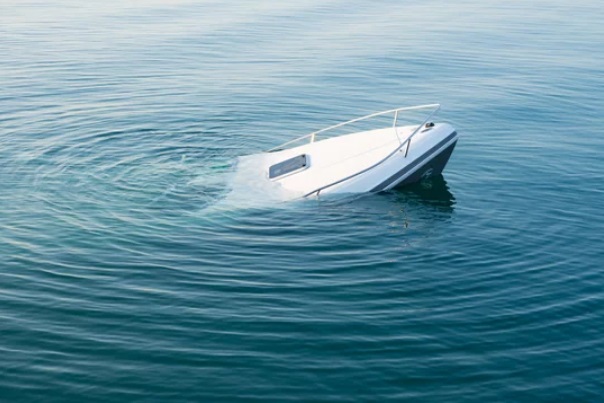BOAT ACCIDENT INJURIES
What is a Boat Accident Injury?
A Boat Accident injury occurs when a person is hurt or harmed while on board a boat or vessel or is hurt or harmed by another boat or vessel. Either way, the pain and damage caused is always inflicted by the careless and negligent behavior of another.
Boaters have many rules, regulations, and laws that he or she must follow. While operating the boat, the captain has a duty to use reasonable care to ensure that the people on his or her boat as well as others enjoying the water are safe.
Boating Under the Influence
In the United States, every state and the federal government have laws against boating under the influence, or BUI, that allow law enforcement officials to stop boats and other watercraft and make sure that boat operators and their passengers are safe enough to be allowed on the water.
The U.S. Coast Guard has warned that alcohol is more hazardous on water than on land. The federal law enforcement agency cautions that BUI regulations exist to prevent and minimize the possibility that an intoxicated person will operate a vessel on the water, reduce the threat of harm to oneself and others, and use criminal and civil laws to discourage operating a boat or watercraft while drunk or under the influence of narcotics. Federal and statute authorities can pull the operator of a boat or other watercraft over, just like on the highway or street if you are suspected of drunk driving. Different factors can affect a boat operator’s physical and mental abilities while on the water. These include heat, sun, noise, wind, glare, and the motion of a boat on the water for a long period of time. These factors are often referred to as “boater’s fatigue.” If alcohol and drugs are also involved, one’s ability to safely operate a vessel on the water can be severely affected.
Law enforcement officials may also set up BUI checkpoints on the water, which are much like roadside DUI checkpoints, to question and check boat operators for boating under the influence and fatigue. Some states do not even require probable cause before law enforcement officials can board your boat. In Delaware, for example, they just do it.
Most state laws define crimes of drunk boating as operating a watercraft on a body of water while under the influence of alcohol. Some state laws provide for a per se BUI offense, which a person commits when operating a boat or other watercraft with a blood-alcohol concentration of more than .08 percent.
More than 20 states also have BUI laws related to minors. Some state laws make any amount of alcohol in a minor’s blood an automatic BUI legal offense. In California, for example, anyone younger than 21 with a blood-alcohol level of at least .01 percent cannot use water skis.
Given the rise in boating injuries and fatalities by recreational and commercial boaters, convictions for boating under the influence can have severe consequences for both private and commercial boaters.
Ships
A ship is considered a common carrier that is responsible for any possible loss or injury that takes place during transport. As a common carrier, a cruise ship owes a heightened duty of care to passengers and the general public.
A ship and its company are usually liable for a catastrophic event, such as an accident at sea. They can also be held liable for other non-catastrophic incidents such as a slip and fall accident on a cruise ship, virus outbreaks, sexual assault by a cruise ship or ferry employee or passenger, or the failure to provide adequate security. Generally, common carriers are held to very high safety standards and may be liable for neglect involving a boat accident injury.
We Can Help
If you have suffered an injury caused by a boating accident, The Personal Injury Help Center can help you find the help and resources you need. Our network of personal injury lawyers, experts and professionals strive for justice and fairness in the form of compensation for victims of boating accidents.
We are dedicated to seeking justice and fair financial compensation for those who are facing a future that has been forever altered by the negligent act of another. When you are looking to file an injury claim, you need to know that you have the best working on your side.
Over the years, our team has been successful in recovering rightly-owed compensation in verdicts and settlements on behalf of our clients. This is a testimony to our ability to help our clients in some of the most complex injury litigation.
When filing a boating accident injury claim, you only have one opportunity to secure a settlement; once you accept an offer, you cannot turn around to get more money if you realize that it will not cover the extent of the damages. To help you better understand what the settlement should cover, the team at The Personal Injury Help Center will help you:
Make sure your injury claim covers all of your medical expenses. This includes hospital bills, rehabilitation, future medical costs, costs of medication, future doctor visits, caretaker costs, and reconstructive surgery.
Make sure the settlement covers monetary damages. This includes property damage or car damage, lost earnings and wages, and future loss of earnings.
Make sure you are compensated for other miscellaneous damages. These include pain and suffering, loss of enjoyment of life, and out of pocket expenses.
To learn more about Boating Accident Injury claims and find out how you can obtain compensation for the injuries that you have sustained in any type of accident, complete the Free Case Evaluation form.
.

